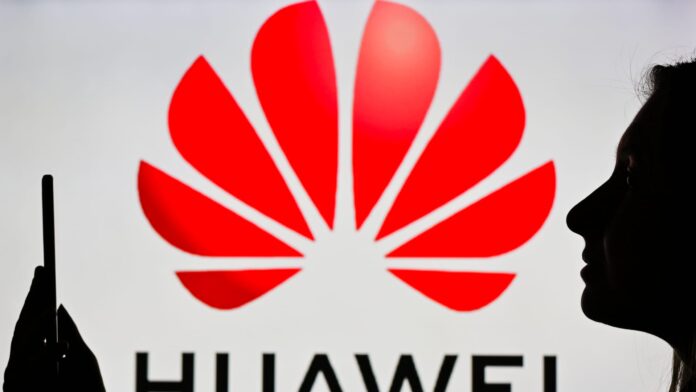An image of a woman holding a cell phone in front of a Huawei logo displayed on a computer screen. Canada on Thursday said it plans to ban the use of China’s Huawei Technologies and ZTE 5G gearto protect national security, joining the rest of the so-called Five Eyes intelligence-sharing network.
Artur Widak | Nurphoto | Getty Images
Chinese technology giant Huawei said Friday it will license its 5G technology to rival handset maker Oppo as it looks to unlock a new revenue stream after its smartphone business was crushed by U.S. sanctions.
Huawei and Oppo, the fourth largest smartphone maker in the world, signed a “global patent cross-licensing agreement, which covers cellular standard essential patents, including 5G.”
Huawei has a massive portfolio of over 100,000 patents globally. It is one of the top patent holders in 5G technology, which is next-generation ultra-fast mobile internet seen as key to underpinning future industries such as artificial intelligence and autonomous cars.
When a new generation of cellular technology is being developed, so-called global standards need to be created. These are protocols, technical specifications and design that allow interoperability between 5G networks globally and allows smartphones to communicate with these networks.
Industry bodies are tasked with creating these and companies like Huawei will contribute to their creation. These companies devise technologies which they then patent. The patents, which are critical to the standards of say 4G or 5G, will be deemed a “standard essential patent” or SEP.
Huawei has not been aggressive in monetizing these patents historically versus some of its rivals like Nokia and Ericsson.
However, in 2019, the U.S. used a number of measures including a export blacklist to cut Huawei off from the critical semiconductors it needed for its smartphones and some other products. This crushed the company’s smartphone business which was once number one in the world at the time.
Last year, the Chinese tech giant indicated that it would begin to start selling its technology to other companies via patents.
The company previously stated that it expected to earn revenue of $1.2 billion to $1.3 billion from licensing its intellectual property between 2019 to 2021. Huawei said that it met its intellectual property revenue expectations for 2021, but did not provide a figure.
5G has become a contentious part of the broader technology battle between the U.S. and China. Both nations view it as a critical technology. But the U.S. has expressed concerns that Huawei represents a national security threat and has pressured other nations to ban the Chinese firm from their 5G infrastructure. Huawei has repeatedly denied that it represents a national security threat.


